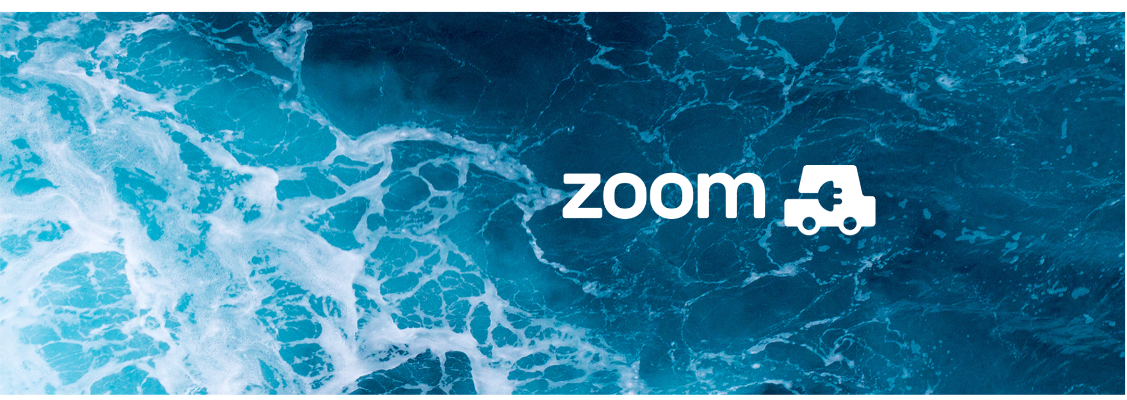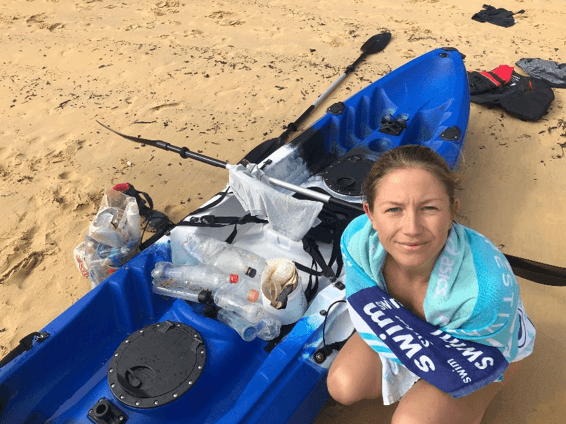
Having a personal impact on reducing plastic and waste
Now’s the time for all of us to take action and start living with less plastic. Hopefully this blog will get you thinking about what more you could be doing to reduce the plastic in the world and give you some ideas on how to get started.
When I moved to Sydney Australia, I was scared of the sea. I was terrified of waves, hated seaweed, avoided fish (especially sharks!). I had never done an ocean swim, to be honest I rarely went in past my ankle unless it was clear and flat. I quickly decided that I needed to get over my lifelong fear which had gripped me since I first watched Jaws (I still hate that movie) and get in the ocean. I’m proud to say I’m now a confident ocean swimmer and advanced diver, I’m excited by the sea and love everything in it. Quite a change in mind set.
What’s obvious living in Sydney is that people are far more environmentally aware than anyone I knew used to be in the UK. I guess it’s living by the ocean that does it; being so close to the reality of the changes that are happening, and not wanting the beauty and nature you see to ever be damaged. My love of the ocean has challenged me to change my lifestyle and to inspire others to join the cause. Hence the blog.

REDUCE. REUSE. RECYCLE.
Society is not focused on reducing intake, reusing items or recycling them once we’re done. Imagined you vowed to never again buy a plastic water bottle or a coffee cup. And then imagine that everyone else pledged to do the same. I feel it would go a long way to making change. I carry my water bottle and coffee cup wherever I go, and if I don’t have them it’s simple, I don’t get coffee or bottled water. Yes, corporations and governments need to make drastic changes in policy and process to get us out of the crisis we face, but ultimately personal responsibility is at the heart of what’s needed since corporations and governments only react to our actions and changes in behaviour, they only reflect the values and stances taken by the public.
GET CLUED UP, UNDERSTAND THE SCALE OF THE ISSUE
So what can we do? I think the first most important step is to make sure we are informed. That we know our facts and have made an effort to understand the importance and the scale of the issue at hand. I personally learnt a hell of a lot from reading ‘Turning the tide on plastic’ by Lucy Siegle. Here are just a few key things to know :
“The plastic we throw away in a single year could circle the earth four times. Out of the 320 million metric tonnes of new plastic mass-produced each year – almost all from oil – eight million tonnes leak into the world’s oceans and waterways. That is the equivalent of a truckload of plastic being upturned and shaken out straight into the sea every minute of every day.”*
“Despite the growing demand, just 5% of plastics are recycled effectively, while 40% end up in landfill and a third in fragile ecosystems such as the world’s oceans.”
“In the UK we create 5 million tonnes of plastic packaging waste every single year, and we only have the industrial capacity to recycle 350,000 tonnes — that’s just 7% of what we create. Globally just 15% of all plastic waste is recycled.” ie it’s absolutely key we radically reduce the amount we use in the first place.
“The best research currently available estimates that there are over 150 million tonnes of plastics in the ocean today.”
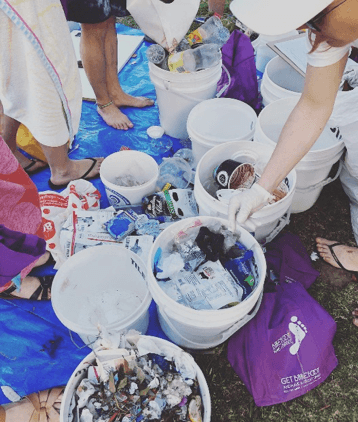
REDUCE YOUR IMPACT
Secondly, we can be mindful of our own usage and waste and do something to reduce our own impact. Social studies show us that we are far more likely to make a change if we see others doing the same… be the change maker. Consider your lifestyle and work out where you are using most plastic on a regular basis, then pick one or two things from the list below that you feel you could action :
Bottled water :
“Every minute of every day, one million plastic bottles are used. Imagine each of those bottles, a quarter filled with oil; the amount of oil needed to make the bottle in the first place."
Remember, 90% of plastic is made using oil, so when we are using plastic we are doubling the negative impact we have on the environment.
“The average person in the UK will use 150 plastic water bottles every year. In London, usage is 175 plastic water bottles per person per year.”
Buy a reusable water bottle and fill it up. Take it pretty much everywhere you go, leave one in your car and at work. Remember to take it when you travel, most train stations and airports have water fountains.
Keep Cups :
It’s estimated that 500 billion disposable coffee cups are produced globally each year.
Take the pledge to ditch takeaway coffee cups. They can’t be recycled properly. Buy a keep cup (I like Keep Cup and Joco cups). Keep it at work and take it out every time you go to get coffee.
Take away food :
Over half of the world's plastic thrown out in 2015 was plastic packaging.
If you buy lunch at work, either take your own Tupperware or try to go to places which use cardboard boxes. A lot of cafes now offer Biodegradable boxes, but the fact is that these require extreme temperatures to degrade which requires a lot of energy, and we don’t yet have a clear recycling system for these products, so they are likely to still end up amongst the rest of your waste.
Do you really need to take the cutlery? Can you take a fork from the office or from home so you don’t need to throw one away?
Your weekly shop :
According to UN Environment, up to 5 trillion single-use plastic bags are used worldwide every year
Avoid plastic wrapped items in supermarkets, either go without certain items or get them at a market or local coop where you can use your own Tupperware, glass jars, or paper bags to fill them up. Start with simple dry items such as rice, nuts, oats, couscous, pasta etc.
Buy reusable bags, never buy another plastic bag again
In fact, when you buy anything, check if it’s got lots of packaging… do you need it? Can you get it somewhere else without the packaging?
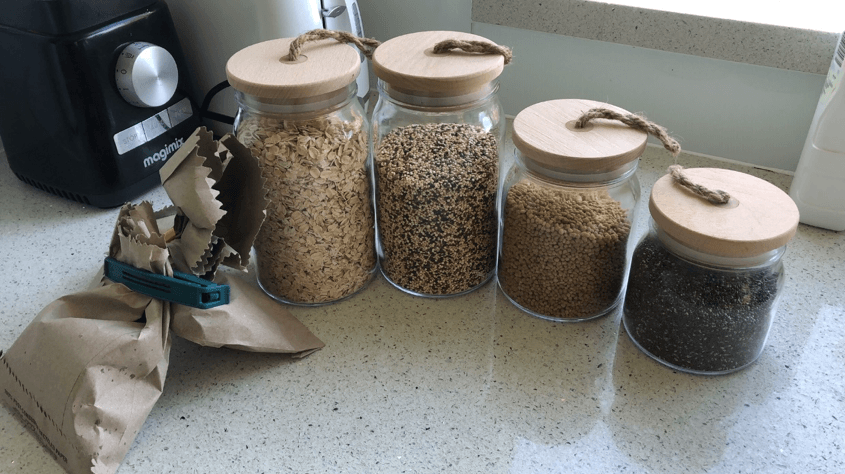
Make the switch to non-plastic kitchen products:
"Each year, a minimum of 1 million seabirds and 100,000 marine animals die from ingesting our plastic”
Ditch clingfilm. Beeswax wraps are better, they can be re-used and keep your food super fresh.
Learn to live without straws. If you suspect your drink might arrive with one, tell them beforehand you don’t want one. Make a point of it if bars do serve drinks with straws, mention it to their manager.
Join the The OneLessStraw Campaign (set up by some awesome teenagers) and pledge not to use a straw in 30 days
Teach your kids to love the earth :
“Sea turtles often mistake larger pieces of plastic, like balloons, as food. A recent by the University of Queensland found that one in three sea turtles have eaten marine plastic.”
Say no to buying balloons, most kids would rather save a turtle than have a balloon for the day.
Choose non-plastic toy options, kids don’t need plastic to have fun.
Give it a go. Make one change for one month and see how you go. I guarantee you can do it if you try. If you’re already on with it, thanks for caring for the environment!
THANK YOU : )
Written by Dana Taylor
20/01/21
Blog
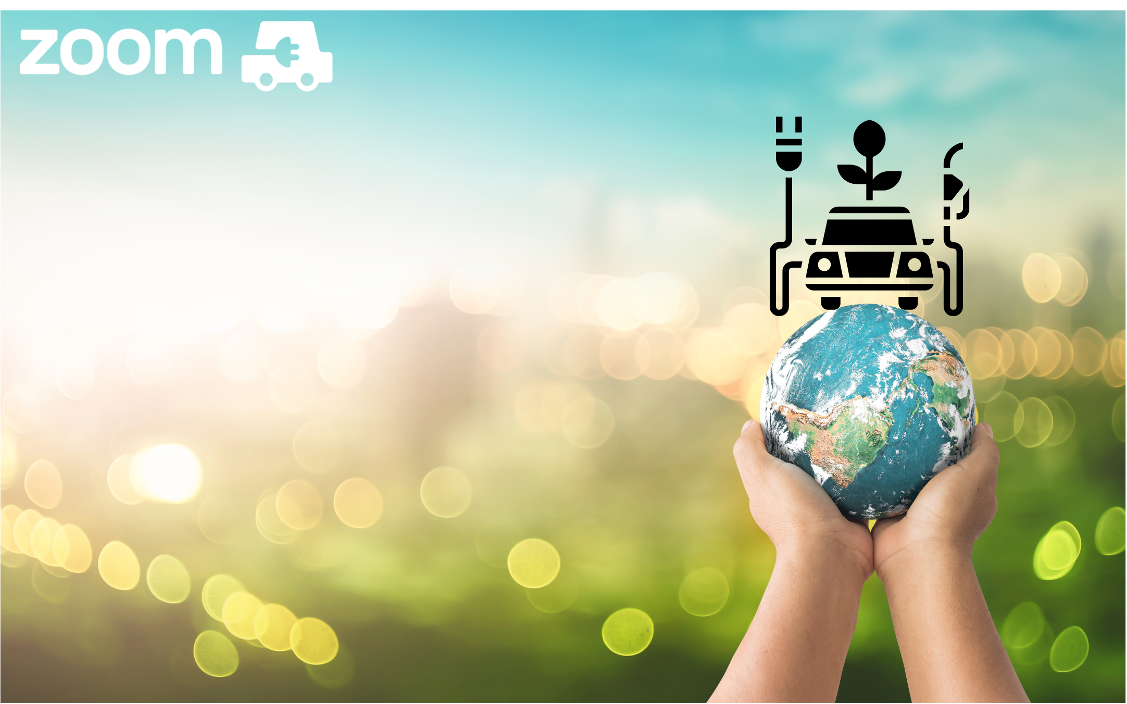
Our mission to cut carbon emissions and plastic pollution
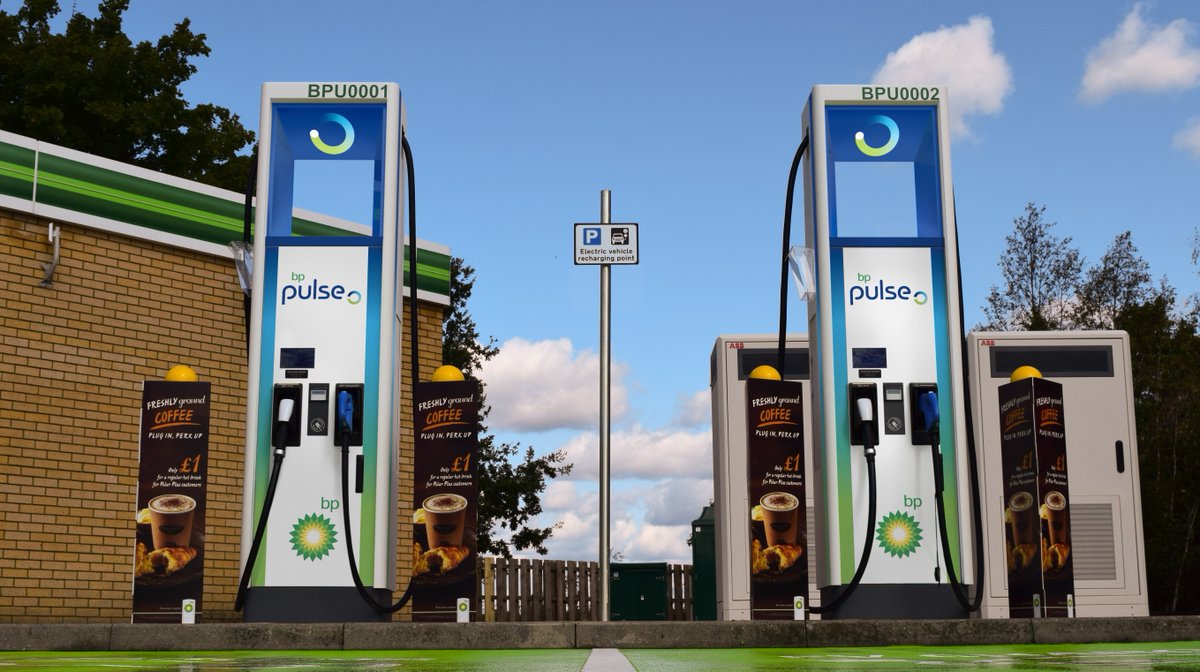
The Zoom EV Driver Benefit Bundle
